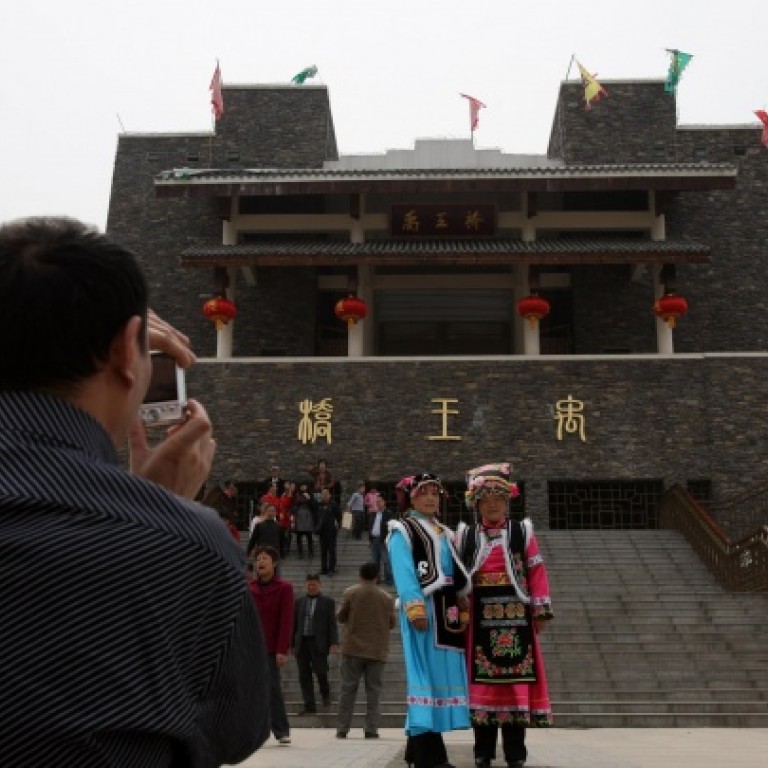
Dreams of better life after Sichuan quake dashed in Beichuan tourism zone
Tourism project meant to revive quake-ravaged county has been a flop
When a pedestrian street opened in Beichuan county, Sichuan , two years ago there was excitement at the prospect of a new beginning in the wake of the earthquake that levelled the region three years earlier.

But results have been far below expectations.
"Business? Where is the business with nobody coming to this place?" Wang Jianbo said bitterly. The 46-year-old shop owner sold a tourism bus and moved from Xinjiang to Beichuan because his wife was originally from there. But his expectations have been dashed.
"Do you know how much I have sold in the past two years? Just 46,000 yuan in total," he said. "Every transaction is here in this notebook. See for yourself."
Wang sold goods from Xinjiang such as knives and wine. Many bottles on display are now covered in dust. He said business was good when the shop opened but the number of visitors gradually declined.
Even when a tourist bus does come through the area, people generally walk around for about 20 minutes and leave. Nobody buys anything.
Wang used to have two other stores but he had to sublet one to cut his losses.
"When it gets hotter in the summer, you can't even see a ghost around here," he said.
The area is void of major tourist attractions or historic sites, so it's not as popular as places such as Yingxiu town in Wenchuan county, the epicentre of the May 12, 2008, quake and a stop between Chengdu and the famous Jiuzhai Valley National Park.
The commercial street was built with support from the wealthy eastern province of Shandong , which helped rebuild Beichuan, where more than 19,300 people died and 26,900 were injured.
All the infrastructure there was damaged, and 80 per cent of homes were flattened.
Wei Changrong lost her son and daughter in the quake. A small tea shop on the shopping street gave her life new purpose, and it served as a place for her to pass the time. But the times have been tough.
"Could business get any worse? It is bad day after day," Wei said.
Some larger shops have closed, and Wei said a few that spent big on decor never bothered to open because business was so bad.
The property management company continues to seek rent from the tenants, but owners have withheld payments and requested discounts.
Cao Junlan, a souvenir vendor at the tourist centre near the Beichuan Earthquake Memorial Park, said she constantly felt like she was in debt. She moved from Guizhou back to her hometown to open the small shop after the earthquake, and business was good in 2009, but it's not any more.
"It is noon now and I haven't sold a thing," the 56-year-old said.
Residents of the county's Jina Qiang ethnic minority village, where many restaurants sprang up after the quake, have to share what business there is. Only three restaurants are allowed to operate because there was too much competition for the area's few tourists, and residents may now hold only a share.

